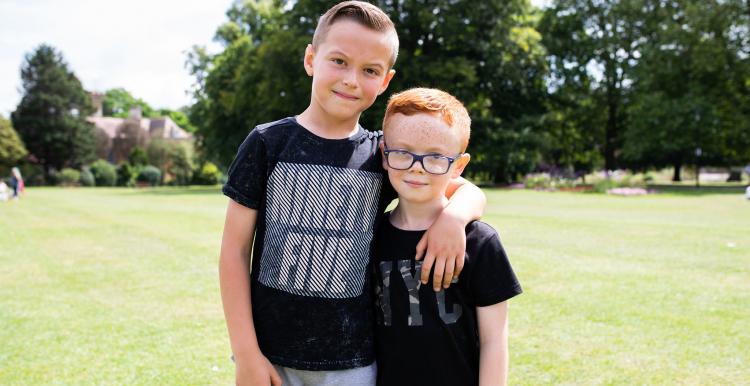Little lungs need big protection – know the signs of bronchiolitis in children this winter

Bronchiolitis is a viral respiratory infection which is common at this time of year and throughout the winter months, affecting around 1 in 3 babies and young children. Last year saw fewer infections in younger people due to Covid-19 restrictions, which means that many will not have developed immunity and may be at higher risk of severe illness.
For the majority of children, these illnesses will not be serious, and they will soon recover following rest and plenty of fluids, but sadly some of these cases will be more serious and require hospital care.
The new awareness-raising campaign encourages parents to look out for symptoms of a more severe respiratory infection, tweaking well-known nursery rhymes to highlight what parents should be aware of. This is particularly important in at-risk children, which includes some children under 2, especially those born prematurely or with a heart condition, who can suffer more serious consequences from these common respiratory infections.
Most cases of bronchiolitis are not serious and clear up within 2 to 3 weeks, but parents should contact their GP or call NHS 111 if their child has bronchiolitis and:
- Struggles to breathe, or has very rapid breathing
- Has taken less than half their usual amount during the last 2 or 3 feeds, or they have had a dry nappy for 12 hours or more
- Develops a persistent high temperature (fever) of 38°C or above
From March to September this year, 1,642 children under two were admitted to hospital in Greater Manchester with bronchiolitis.
Whilst there is no treatment for the virus, doctors will be able to help your child with their oxygen levels and feeding if it is needed.
It is very rare that symptoms would be severe, but call 999 for help if your child:
- Has blueish lips
- Is unresponsive
- Stops breathing or holds their breath for more than ten seconds
- Is difficult to wake or keep awake
Dr Jo Morgan, clinical lead for paediatrics at Bolton NHS Foundation Trust said:
“We started seeing babies and young children with bronchiolitis in the summer months this year, and it’s really important that as we head into winter parents are aware how to help their children get better at home, but also when and how to get help if needed.
“Most cases of bronchiolitis start with symptoms similar to a common cold and usually get worse over the first few days. Parents can help them to get better at home with paracetamol if they are unsettled or have a temperature, saline drops to unblock their nose, and offering smaller feeds more frequently.
“If their breathing is worsening to the point that they are having difficulty breathing, it is important that you seek help from your GP or NHS 111.”
Hear more from Dr Morgan here.
Julie Flaherty MBE, paediatric consultant nurse and children’s clinical advisor for the Greater Manchester Health and Social Care Partnership said:
“This campaign aims to give parents and carers the important information they need to spot bronchiolitis symptoms early and the steps they can take to reduce their child’s risk of catching and spreading it.
“We know bronchiolitis can be unpleasant and uncomfortable for small children and we want to support parents to know what to look out for and when to seek medical help. In most cases, parents will be able to look after their children at home and our helpful webpage shares top tips how to do so.
“Newborn babies are particularly vulnerable, and we would urge parents to be mindful of their visitors and anyone who feels unwell with cold, or flu-like symptoms should hold off meeting the new baby until all symptoms have gone.”
Respiratory infections are very hard to prevent, but there are steps that parents can take to reduce the risk of their child catching and spreading it, including regular handwashing, and keeping newborns’ away from people with cold and flu symptoms. It is also important to keep your child at home if they are unwell.
Find out more about the symptoms and what to do at www.gmhsc.org.uk/littlelungs/.


